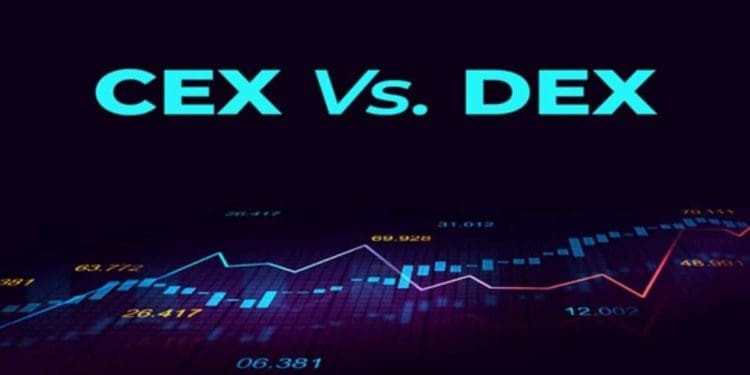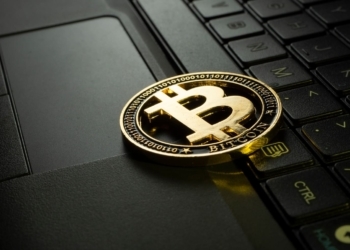If you want to get into the cryptocurrency ecosystem, you will need a wallet. If you want to trade, buy or sell, you MUST need an exchange. An exchange is a digital marketplace for trading cryptocurrencies.
Examples of popular exchanges are Binance, Uniswap, and Kraken. Most of these digital marketplaces are centralized exchanges (CEX): they use traditional business, banking, and finance models (like New York Stock Exchange) for operations.
Today, several decentralized applications are cropping up and redefining the way exchanges function.
In this article, we will see what Centralized Exchanges (CEX) and Decentralized Exchanges (DEX) are, how they work, and their pros and cons.
Centralized exchanges have been on the scene for many years. Meanwhile, Decentralized exchanges came into the scene barely five years ago and are challenging the already existing centralized exchanges.
In summary, the goals of DEX (Decentralized Exchanges) are to allow users to hold and control their assets, provide lower transaction fees for users, and eliminate middlemen or regulatory authorities from transactions.
Alternatively, they have challenges like compensation costs for those providing them with liquidity. They have to compensate these liquidity providers to avoid a special type of risk called impermanent loss.
Centralized Exchanges have their benefits too. CEXs provide stronger assurance of regulations and more liquidity. These benefits are what clients who are institutions look out for when transacting with exchanges.
Furthermore, read on for the advantages and disadvantages of CEX and DEX below.
CEX Shortcomings are Building Foundations for DEX
One major aim of DEX is to make transactions faster when compared to the CEX. One way DEX wants to achieve these speedy transactions is to take out middlemen and central authorities, making transactions peer to peer.
These middlemen receive payments for facilitating transactions between two or more parties on CEX. The largest DEX Uniswap showed that its rent extraction will be free. They proclaimed this free rent extraction in their whitepaper in 2018.
They made this proclamation to save users from enriching the pockets of these intermediaries that facilitate CEX transactions between users.
In 2017, Bancor explained itself as a DEX that seeks to have an approach to decentralization in this manner: “Liquidity on traditional asset exchanges has historically been provided by a small handful of professional trading firms with permissioned access and specialized tools.
This concentrates liquidity in the hands of a few actors who can withdraw their assets during periods of volatility and restrict the trading of an asset when users need it the most.”

After the first half of 2021, Uniswap took less than a 0.1% fee when users transact trades worth $100,000. At this time, major CEXs like Coinbase, Binance, and Kraken took at least 0.1%, and Kraken charged a 0.2% transaction fee.
In determining asset prices without the involvement of a centralized authority facilitating the trade, DEX makes use of Automated Market Maker Protocols.
One usual approach mechanism is the constant product, this mechanism decides the prices these DEX offers. The prices are a ratio function of the total DEX reserve of the associated digital assets.
This approach has a fair advantage: it helps the DEX reserves maintain balance. It means that the rarity of an asset determines the worth of the asset. Nevertheless, the asset prices in DEX are roughly the same as in CEXs.
Here is the reason it is so:
Traders and bots that are focused on trades can make massive quick profits from any price change using an arbitrage trading strategy. If a particular pool contains very limited Ethereum, the pool will allow traders to sell their ETH for a much higher price in the pool.
The price will differ from what is obtainable within the wider trading market. It means that as a trader, you can buy from the wider market for a relatively higher price and sell in the smaller pool where there is limited ETH for a relatively higher price.
If this trade keeps going on, the amount of ETH will keep increasing in this small pool, and the price in this pool will eventually become the same as the wider market.
DEX Impermanent Loss Challenge
As spotless as DEXs look, there is a risk that backend pool liquidity providers face. This risk is the Impermanent Loss risk. There is a provision in DEX that allows liquidity providers to take out the part of the contributed worth of the pool, although, not in the accurate token inputs that they made.
All traders will not get the same amount of token value portion because as trade goes on, the ratio of the various tokens people in the pool can get altered as trade keeps occurring.
But with the ratio adjustment showing the prices in the wider market, there will be a progressive amount of the tokens losing value in the pool, and vice versa.
It implies that liquidity providers may finally withdraw less of the token with increasing value and more of the token with decreasing value. This comparison is with the asset that they started with.
It means that if they had just decided to privately hold on to their assets, they will be richer.
Practically, the major way DEXs pay back liquidity providers is by giving them transaction fees. Therefore, they will charge more transaction fees than the usual transaction fee.
Non-custodial vs. Custodial
The big question between DEX and CEX here is this: would users prefer to directly hold on to their digital assets or choose to put them in the hands of exchanges? Users who want to use CEXs will need to deposit their digital assets in the possession of CEXs before they can trade on the CEXs.
When users keep their digital assets by themselves, they are revealing the true essence of the cryptocurrency industry, reliance on oneself. Having control of cryptocurrencies means you have full control of your funds and how you transact them.
Alternatively, if the user who has full control loses wallet passwords or private keys, the assets in their possession will be gone forever.
As you are getting into the cryptocurrency ecosystem, your choice of the type of exchange to use will depend on answering these two questions:
- Do you care more about the ease of use and do you find it a problem being in control of your assets?
- Is your priority to control your assets and pay lower fees for transactions?
If your answer is YES to the first question, then you will need to start with CEXs. If your answer is YES to the second, then you will need to begin with DEXs. If you want both, then there is nothing wrong with being part of the DEX and CEX community. No matter the type of exchange you want to start with, just make sure you understand the intricacies.
Learn more:
How to earn passive income with cryptocurrency exchanges
How to save on cryptocurrency exchange commissions
Californian Crypto Exchange Kraken gets license to operate in UAE












Discussion about this post